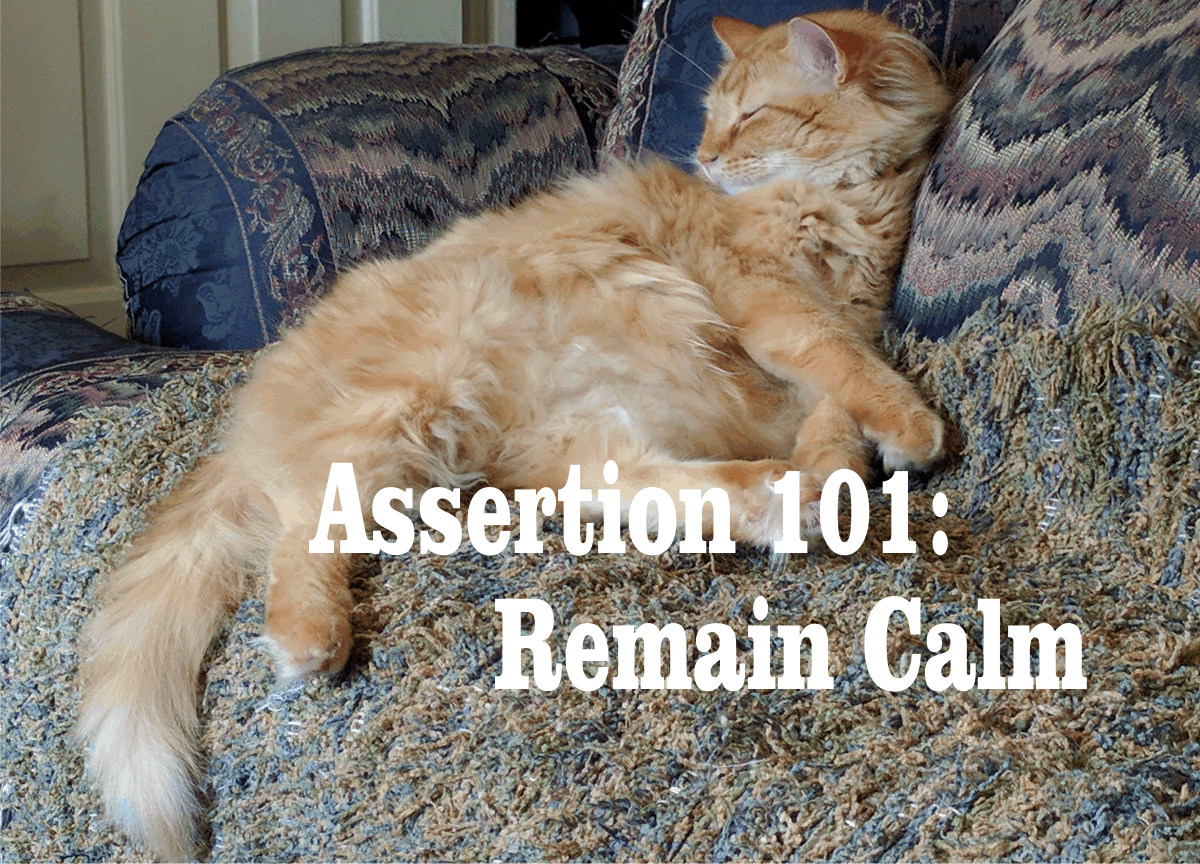










Popular Articles
Crazy-Makers: Dealing with Passive-Aggressive People
Why Are People Mean? Don't Take It Personally!
Struggling to Forgive: An Inability to Grieve
The Secret of Happiness: Let It Find You (But Make the Effort)
20 Steps to Better Self-Esteem
7 Rules and 8 Methods for Responding to Passive-aggressive People
What to Do When Your Jealousy Threatens to Destroy Your Marriage
Guide to How to Set Achieveable Goals
Catastrophe? Or Inconvenience?
Popular Audios
Audio Version of Article: Crazy-Makers: Passive-Aggressive People
Audio Version of Article: Why Are People Mean? Don't Take It Personally!
PsychNotes January 2018
by Monica A. Frank, Ph.D.
Clinical and Sport Psychologist

Index
Previous
Next
Assertion 101: Remain Calm
I've noticed in my responses to readers asking about managing a passive-aggressive (PA) person, I often note, “And be sure to say this calmly.” When conflict occurs, often the person who can remain calm is the one in control of the situation. But remaining calm is easier said than done for many people especially when confronted by a PA or aggressive person.
Conflict situations when remaining calm can be helpful:
1) Someone has aggressed against you. When someone is taking an aggressive approach, they are seeking aggression or control. Therefore, the more calm you can remain, the more likely you are able to defuse the situation. My training in a psychiatric inpatient unit for paranoid and schizophrenic patients emphasized the importance of being calm when confronted by an aggressive patient.
My karate training also stressed the importance of remaining calm when confronted by an aggressive stranger. Karate taught me to take a stance that appeared to be non-aggressive: stay relaxed, put hands up casually facing outward, slightly back away, and talk calmly. The hope was that we could talk the other person down from aggression but we were also getting in a prepared stance to allow a quick reaction to a physical assault. Read more...

Personal Responsibility is Politically Incorrect?
My head nearly exploded when I read that a psychologist writing about “personal responsibility” was called “controversial” and “politically incorrect.”
“Politically incorrect?! Politically incorrect?!” I sputtered. “This is basic psychological science that has been demonstrated repeatedly for decades!”
What got my ire up? Media descriptions of Jordan Peterson, Ph.D. and his best-selling book 12 Rules for Life: An Antidote to Chaos
portrayed his central premise of “personal responsibility” as “controversial.” Sure, the way he presents his ideas may be too Bible-based for some and too irreverent for others but the underlying concept of personal responsibility is politically incorrect?
His ideas are not new but are based on decades of psychological research. Now this research base showing the effectiveness of cognitive-behavioral therapy (CBT) and other similar methods doesn't fit the politically correct narrative? Read more...

PsychNews
Links to news articles based on psychological research:
More links...

Staying Motivated with a New Exercise Program
Many people start exercising this time of year because they know it is healthy for them and to get back into shape after the holiday indulgences. Unfortunately, many people don't continue after the first few weeks.
One way to stay motivated and return to your plan day after day is to increase your positive memories of the exercise according to researchers Zenko and colleagues (2016). How can you do this when starting exercise is often painful and unpleasant? And a basic principle of motivational theory is that we tend to do what is pleasant and avoid what is unpleasant? Read more...
















